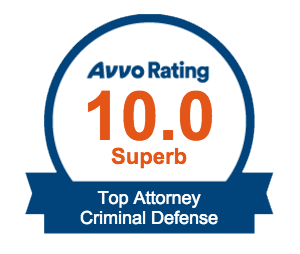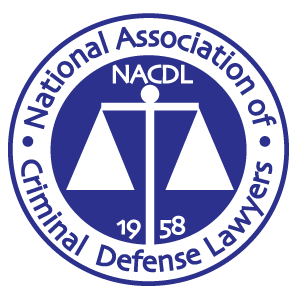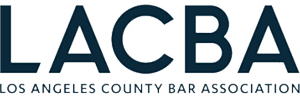According to California’s Vehicle Code 23152(d), it is unlawful for an individual to operate a commercial vehicle when his/her blood-alcohol concentration is 0.04% or higher. If you have been convicted of commercial DUI, the authorities may suspend your commercial driver’s license. You risk losing your license for life if you are convicted for a DUI for a second time.
Losing your commercial driver’s license can be quite devastating, especially if you rely on commercial driving as a source of income. Read on to know more about the consequences of a commercial DUI. For further questions about this topic, reach out to The DUI Defense Attorney team. Our main goal is to help individuals who have been charged with DUI in Van Nuys be acquitted or have their charges reduced.
What is a Commercial Vehicle?
You need to know what a ‘commercial vehicle' is so that you can assess whether it falls within the ambit of California's commercial DUI laws.
Generally, there are two types of ‘commercial vehicles.’ These types include:
- Commercial vehicles that can only be operated with an individual holding a ‘Class B’ license
- Commercial vehicles that require the driver to hold a ‘Class C’ (standard) license with a commercial endorsement
The types of vehicles that can only be operated with individuals holding a Class B license include vehicles with a gross vehicle weight rating (GVWR) of over 26,000 pounds and 3-axle vehicles weighing above 6000 pounds. Individuals with regular (class C) licenses may be permitted to drive some specific small commercial vehicles, provided they have obtained a ‘commercial driver endorsement.’ These small commercial vehicles include double trailers, cars that carry hazardous substances and require placards, passenger vehicles that carry more than ten passengers, including the driver, tank vehicles, school buses, and even farm vehicles in some cases. Recreational vehicles and agricultural vehicles that are driven by individuals who aren’t required to obtain driver’s licenses are not categorized as commercial vehicles in California.
What is California’s Commercial DUI Law?
California’s commercial DUI law is Vehicle Code 23152(d). This law states that it is illegal for an individual whose blood-alcohol content is 0.04% or higher to drive a commercial vehicle. Furthermore, Vehicle Code 23152(d) illustrates that even if a person’s BAC level exceeds 0.04% within three hours after driving, that person can still be prosecuted for DUI.
How Drivers of Commercial Vehicles May Be Cited for DUI
Typically, commercial drivers suffer severe consequences if the court convicts them under any DUI law in California. Some of the situations that may give rise to DUI penalties for drivers of commercial vehicles include:
-
The Driver is Under the Influence of an Alcoholic Beverage
As per California’s DUI laws, a driver will be deemed to be ‘under the influence’ if:
- His/her physical or mental abilities are impaired
- He/she is unable to drive exercising reasonable care and caution an ordinary person would under similar circumstances
-
The Driver has Exceeded California’s Legal Limit for Blood-Alcohol Content Levels
Any driver in California will be deemed to have exceeded California’s legal limit for blood-alcohol content levels if:
- He/she drives a commercial vehicle with a BAC level of 0.04% or higher
- He/she drives a non-commercial car, and his/her blood-alcohol content level is 0.08% or higher
Most attorneys describe this form of DUI as ‘per se' DUI. ‘Per se' is a Latin word that means ‘of itself.' If you exceed California's legal limit for blood alcohol content levels, then you will have committed the offense of DUI ‘of itself.' It, therefore, means that the prosecution will not have to prove that you were both physically and mentally impaired to drive.
-
The Driver is Under the Influence of Drugs (With or Without Alcohol)
You can still be arrested for DUI if you are under the influence of drugs, regardless of whether they are prescription drugs or narcotics and whether you have combined them with alcohol. This type of DUI is known as ‘DUID’ or ‘DUI of drugs.’
The Penalties for Commercial DUI
As asserted earlier, individuals convicted of commercial DUI tend to suffer more aggravating consequences. Here are the penalties for commercial DUI:
Commercial DUI, No Third-Party Injured
A commercial DUI convict who has not injured any third party may face the following consequences:
- Informal probation for 3-5 years
- Suspension of your driver’s license for at least one year
- A county jail term of up to six months
- An order to attend a DUI school for three months
- Fines that may range from $390 - $1000, plus court assessments whose value may be up to $2000
Loss of a Commercial Driver’s License for Life for a Second DUI
A motorist who is convicted of second commercial DUI may lose his/her driving license for life. A commercial driver who is under arrest for a second DUI should get in touch with an experienced defense attorney for him/her to avoid losing his/her license permanently.
Commercial DUI Causing Injury
If you injured a third party while driving under the influence of drugs or alcohol, you might be charged with DUI causing injury, as per California's Vehicle Code 23153. This offense is a wobbler, and it may be charged as either a felony or misdemeanor depending on the prosecutor's discretion.
If you are convicted of misdemeanor DUI causing injury, you may face the following punishments:
- Summary probation of 3-5 years
- Restituting all the injured victims
- A county jail term of five days to one year
- Suspension of your driver’s license for one year or three years
- Fines between $390-$5,000
- An order to attend a DUI educational program for 3, 9, 18, or 30 months
On the other hand, persons convicted of felony DUI causing injury may be incarcerated in the state prison. The length of the prison sentence will depend on whether the convict had any prior drunk driving convictions, the extent and magnitude of the injuries of the victims, and the number of people that were injured.
The court can also order a strike on the convict’s record pursuant to California’s Three Strikes law, especially if there was a third party that suffered grievous bodily harm. Furthermore, convicts of felony DUI causing injury may be ordered to pay fines of between $1015 - $5,000 and to attend a DUI school for 18 or 30 months. The DMV may also designate them as habitual traffic offenders for three years, as well as have their licenses revoked for five years.
CDL Suspension According to Federal Law
It is not only the California courts and the DMV that have the powers to suspend your CDL after a commercial DUI but also federal law. This is because many commercial vehicle drivers cross many state lines, and it is primarily the provisions of federal law that regulates them.
When you are arrested for a commercial DUI, you will be subject to all the punishments and fines imposed by the Federal Motor Carriers Safety Administration (FMCSA). As per federal law, your commercial driver’s license can be revoked or suspended for a minimum of 60 days if you have been convicted of driving under the influence. Furthermore, federal law requires DUI convicts to notify their employers about it within thirty days after the conviction date.
What Can Happen if a Commercial Driver Fails to Submit to the Chemical Test?
If a driver of a commercial vehicle fails to submit to the chemical test, the DMV will automatically suspend his/her license for one year. Also, the court can increase the period of his/her license suspension and jail term depending on the number of his/her prior DUI convictions. For instance, a convicted felon of commercial DUI who had refused to take the BAC test and has one prior DUI conviction on his record may be sentenced to an additional jail term of 96 hours, and a 2-year license revocation period.
DMV Hearing for Commercial DUI
When a law enforcement officer arrests you for a commercial DUI, he/she will confiscate your license. Then, he/she will issue you with a revocation order or a suspension order that will act as your temporary license for thirty days.
You should request a DMV hearing within ten days after the date of arrest for you to stop your commercial driver's license from being suspended. This DMV hearing is a separate legal proceeding that is independent of your DUI court trial. It is primarily an administrative procedure in which you will have to fight to regain your driving privileges.
If you don’t request a DMV hearing within the 10-day timeframe, your CDL will automatically be suspended. You will have to complete the suspension period before you can reinstate it. Requesting the DMV hearing will delay the suspension of your commercial driver’s license. If you win the DMV hearing, you will stop the suspension altogether.
DMV hearings are usually informal, and much more relaxed when compared to court trials. The presiding officer has no formal legal training, and it can even take place over the phone. However, you should still retain a DUI defense attorney who will ensure that your statutory rights are not violated during the hearing.
Your attorney will help you to review and challenge evidence and present and cross-examine witnesses. Winning the DMV hearing has a significant impact on your commercial DUI court case. The DMV hearing may reveal serious flaws in the case of the prosecution, and your attorney may enter into a plea-bargain agreement to reduce your charges. Or rather, the prosecutor may be convinced to dismiss your charges.
Applying for a Restricted License after a Commercial DUI
You are not permitted to obtain a restricted license to operate a commercial vehicle if your driving license has been suspended because of a commercial DUI offense. However, you may choose to downgrade to a Class M (motorcycle) or a non-commercial Class C vehicle (car) and obtain a restricted license to drive a non-commercial vehicle.
This restricted license will permit you to commute to and from work, to attend a DUI school, to drive your children to and from school, and to take yourself or your loved ones for emergency medical care services. Furthermore, for you to use the restricted license, you will have to install an ignition interlock device in the car. You will be responsible for the costs of IID installation and maintenance.
Reinstating a CDL after a Commercial DUI
There are various steps that you should follow for you to reinstate your suspended commercial driver's license. But for you to initiate this process of reinstatement, you should have a personal driver’s license that the DMV holds in good standing. You will be unable to lift your CDL license suspension if your driving license is suspended, canceled, or revoked.
You might have to start the CDL application process all over again if you downgraded your commercial license to a Class M or Class C license. Furthermore, you will have to fill in all the forms the DMV requests, as well as pay license reissue or application fees.
If the DMV deems you to be eligible for reinstating a commercial driver's license, it will notify you when you can begin the reinstatement process. During the reinstatement process, you will have to perform a medical exam, submit a 10-year History Record Check Form, and pay all the application fees. If you downgraded your CDL to a non-commercial license, you would be required to complete all the knowledge and driving skills tests with the DMV before your license can be reinstated.
Depending on your situation, you may be required to pay different types of fees for you to get back your commercial driving license. Some of these fees include reissue fees, removing restriction fees, drug-related suspensions, and APS suspensions. Moreover, you may also be required to pay court-assessment penalties; and you may need the help of an attorney to avoid being overcharged.
Note that you should only attempt to reinstate your commercial driver’s license after you have completed the suspension period stipulated by the DMV or the court. Sometimes, you may also be required to show proof of completing a DUI educational program. Before you have successfully reinstated your commercial driver’s license, you may have to use a commercial driver’s permit for a specific period. You can consult with the commercial DMV representative in your area to review all the steps, tests, forms, and fees involved in the license reinstatement process.
How to Fight CDL DUI Charges
There is no distinct difference between a regular DUI charge and a commercial DUI charge. This means that the regular DUI defenses are also applicable in a California commercial DUI case. The best legal defenses to DUI often involve taking the following positions:
-
The BAC Test Results Were Not Accurate
You may believe that the prosecution’s case is quite strong because the chemical test results showed that you exceeded California’s blood-alcohol content legal limits. Often, these BAC results are not accurate.
Your attorney can cite various reasons to demonstrate to the court why the chemical test results are not accurate. Maybe you are suffering from heartburn, GERD, acid reflux, and that's why the chemical testing kit produced falsely high readings. In other instances, you were on a diet, or you had a rising blood alcohol level at the time you took the BAC test.
-
The Law Enforcement Officer Failed to Follow Proper Procedures While Arresting You
All law enforcement officers must follow proper procedures while arresting criminal suspects. Even if you were drunk driving, the police officer arresting you should utilize the right protocol. If he doesn't, then the court will not accept any evidence he acquired in contravention of the law. This will weaken the case of the prosecution, and you may be acquitted.
A law enforcement officer should only motion you to pull over if he/she has probable cause. He/she should also comply with all the procedures for conducting the BAC test, as well as inform you of the consequences of failing to submit to the test. Moreover, he/she should read to you your Miranda rights before arresting you.
Plea Bargaining in Commercial DUI Charges
Your attorney may enter into a plea-bargain agreement with the prosecution to reduce your charges. Since commercial DUI has very severe consequences, you should consider plea bargaining for you to obtain a lesser charge. The most common plea bargain agreements for California commercial DUI often result in charges of reckless driving that have less severe penalties.
Find a CDL DUI Defense Attorney Near Me
You don’t have to give up your livelihood if you have been arrested for commercial DUI. Of course, the police may make arrests, but it is up to the court to ascertain whether you are guilty. At The DUI Defense Attorney in Van Nuys, we have a team of committed and experienced DUI lawyers who can build an excellent defense strategy for you.
You should get in touch with a DUI attorney as soon as possible immediately after you have been arrested for commercial DUI. This will help you to save your CDL license, as well as protect yourself from having a conviction that can jeopardize your job and your source of income. Call us today at 818-253-1913 to jumpstart your case.













